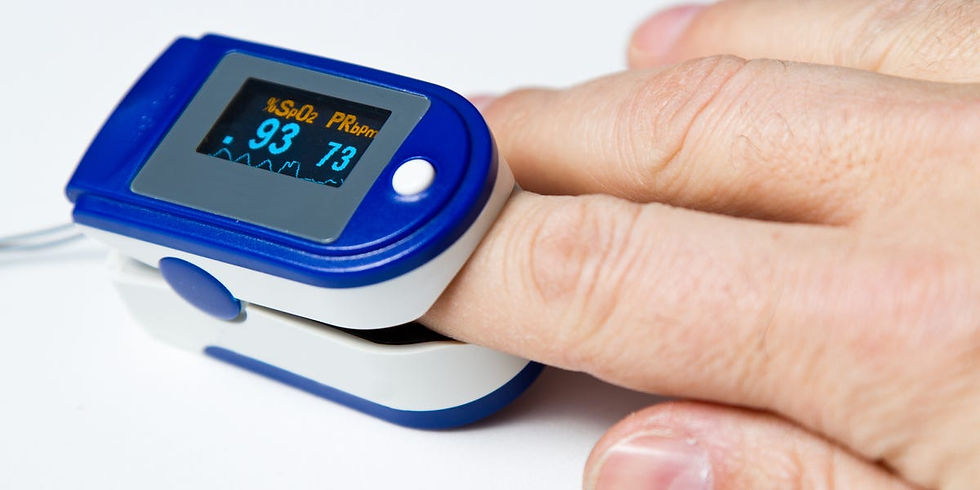How to take care of your Mental Health in the COVID 19-second wave?
- Amisha Debnath

- May 4, 2021
- 4 min read
With the number of cases increasing every day, loved ones being affected, and lockdowns in place, stress, and anxiety are at an all-time high in Covid 19.
"The second wave is particularly serious, not just because of the toll it is exacting due to the large population affected, but also because it struck just as things seemed to be returning to normal. The vaccine provided some relief, but millions remain unvaccinated, and people have yet to recover from their financial and personal losses." - Dr Jyoti Kapoor, senior psychiatrist and founder, Manasthali
QUICK LINK
What factors contribute to mental health issues?
“Fear, worry, and tension are natural responses to potential or actual threats, as well as periods when we are faced with confusion or the unknown. As a result, it is normal and understandable that people are afraid in the face of the COVID-19 pandemic.” - World Health Organization (WHO)
In a pandemic like COVID-19, the fear of catching the virus is compounded by the drastic changes to our everyday lives, with our activities being limited in support of WHO's attempts to contain and delay the virus's spread. Faced with new realities such as working from home, temporary unemployment, homeschooling children, and a lack of physical interaction with other family members, friends, and coworkers, it is important that we look after our mental wellbeing as well as our physical health.

How can people take care of their mental health under these circumstances?
Psychiatrist Dr. Samir Parikh said that, in addition to following Covid-appropriate conduct, one should try not to "look into social media too much." “The secret is social support – share and keep talking to people,” he said, adding that one should maintain a healthy lifestyle, get enough sleep, exercise, do yoga, read, listen to music, and take frequent breaks.
These days, the best way to cope with stress is to concentrate on living in the present.
Here are some suggestions:
Avoid dwelling on numbers that are irrelevant to the average person. All that is required is that one concentrate on oneself, which entails the same old stringent measures of wearing a mask and remaining indoors.
Maintain a strict schedule. Discipline allows the brain to stay focused on the task at hand rather than wandering off into negative thoughts.
Make an effort to engage in creative practice. Find time to engage in hobbies you love, even if working from home is taxing. It relieves the pressure of meeting job deadlines. The procedure itself causes happy chemicals to be released.
Endorphins, which are natural pain relievers, are released during exercise. It also gives us a sense of satisfaction while keeping us physically healthy and strengthening our immune systems.

The balance of neurochemicals can be restored with adequate sleep and a healthy sleep-wake cycle, resulting in less emotional fatigue and burnout.
It is always necessary to eat a healthy diet in order to increase physical and psychological stress tolerance.
Make contact with your loved ones. Don't get into the same old Corona speculations; instead, talk about sports, science, or the universe.
Read whatever interests you, and don't limit yourself to the newspaper; there's a lot to choose from.
Concentrate on all of the stuff that we already have. Things will improve sooner or later. Today, we know more about diseases than we ever did before. Patience is a valuable virtue to cultivate now and in the future.
Do you have trouble sleeping?
According to a recent study released by the American Academy of Sleep Medicine, one-third of Americans are sleeping worse than they were before the pandemic. Around 30% of people say they have trouble falling or staying asleep. During the pandemic, one in five people claims they've had more troubling dreams. Fears of the coronavirus, worry for our loved ones, economic concerns, and reduced social interaction can all contribute to this so-called "COVID-somnia," according to Dr. Malik Merchant, consultant psychiatrist, and psychotherapist at Wockhardt Hospital in Mumbai Central.
Facets that affects the amount and quality of sleep:-
increased anxiety and depression
an increase in the amount of time spent in front of the television
a lack of physical activity
a rise in tobacco and alcohol use

Here are some suggestions for getting a good night's sleep during stressful situations:
Maintain a consistent sleeping pattern-
Even if your schedule has changed due to remote work or school, or because you aren't working, you should try to get at least seven hours of sleep every night and go to bed and wake up at about the same time every day, including weekends.
Switch off all electronic devices-
Limiting screen time before bedtime helps your body prepare for sleep, and avoiding the news and social media before bedtime will help you relax. At least 30 minutes before bedtime, switch off your devices.
Maintain a soothing nighttime routine-
Start unwinding at least 30 minutes before bedtime with quiet activities such as reading or meditation, or relax in a warm bath or shower.
Make your bedroom a relaxing place to sleep-
Sleeping in a cool, dark space is ideal. Switch off the television and keep smartphones and other electronic devices out of your room.
“Good sleep habits will help restore the quality sleep. And that’s better for our overall physical and mental health,” - Dr Merchant.
To help their work, Newsmusk allows writers to use primary sources. White papers, government data, initial reporting, and interviews with industry experts are only a few examples. Where relevant, we also cite original research from other respected publishers.
Source: The Indian Express
































Studies have shown that the odds of backslide sober living in dallas increment to 75% during the primary year of recuperation if individuals don't look for help from a calm living office.